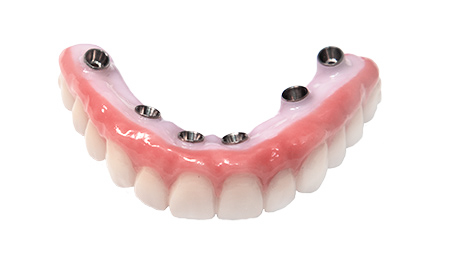7 Simple Techniques For Dental Sense
7 Simple Techniques For Dental Sense
Blog Article
Indicators on Dental Sense You Should Know
Table of ContentsDental Sense - QuestionsThe Dental Sense Diaries5 Easy Facts About Dental Sense DescribedNot known Facts About Dental Sense
are medical gadgets operatively dental implanted right into the jaw to recover a person's capability to chew or their look. They give assistance for man-made (phony) teeth, such as crowns, bridges, or dentures. When a tooth is lost because of injury or condition, a person can experience difficulties such as fast bone loss, defective speech, or changes to eating patterns that cause discomfort.Dental dental implant systems contain an oral implant body and dental implant abutment and may likewise consist of an abutment addiction screw. Front tooth filling. The dental implant body is operatively placed in the jawbone in location of the tooth's root. The oral implant joint is normally affixed to the dental implant body by the joint fixation screw and expands with periodontals into the mouth to sustain the connected synthetic teeth
(https://www.awwwards.com/dentalsense1/)Framework of The Dental Implant System selecting oral implants, speak to your dental service provider concerning the possible advantages and risks, and whether you are a prospect for the treatment. Points to consider: Your total wellness is a vital consider establishing whether you are an excellent prospect for dental implants, exactly how long it will certainly take to recover, and the length of time the implant may stay in area.
Smoking cigarettes might impact the healing process and lower the long-term success of the dental implant. The recovery process for the implant body may take several months or longer, throughout which time you generally have a temporary abutment instead of the tooth. the dental implant procedure: Thoroughly adhere to the oral hygiene guidelines offered to you by your dental provider.
More About Dental Sense
Implant failure can lead to the requirement for another surgery to fix or replace the implant system. Recovers the ability to chew Recovers aesthetic look Aids keep the jawbone from shrinking due to bone loss Protects the health and wellness of the bordering bone and gum tissues Helps maintain surrounding (nearby) teeth steady Boosts quality of life Damage to surrounding all-natural teeth during dental implant placement Injury to the surrounding cells during surgical treatment, such as sinus perforation Injury during surgery (as an example, fracture of bordering jawbone) Poor function, such as really feeling like the teeth do not bite with each other generally A feeling that the tooth is loose or twisting in location resulting from a joint screw loosening up Implant body failing (looseness of the dental implant body) because of systemic infection, which may be a lot more likely in clients with unrestrained diabetes mellitus as a result of local infection in bone and periodontals sustaining the dental implant body due to postponed healing, which may be much more likely in individuals who smoke Difficulty cleaning the gum tissues around the implant, leading to inadequate dental hygiene Unattended periodontal disease Post-surgical numbness because of nerve impingement or damage Always inform health and wellness care service providers and imaging professionals that you have oral implants before any kind of magnetic vibration imaging (MRI) or x-ray treatments.
FDA is not familiar with any type of adverse events reported for MRI or x-ray procedures with dental implants. Dental implants systems are commonly made from materials that comply with worldwide consensus standards of the International Company for Standardization (ISO) or ASTM International. These standards have details of what makes a risk-free material.

An oral implant is a framework that replaces a missing tooth. With screw-like devices, the specialist inserts an implant right into the jawbone, and it acts as an anchor for a synthetic tooth, called a crown.
Not known Facts About Dental Sense
Some individuals are not eligible for oral implant surgical procedure. It is for dental doctors to operate individuals with: acute illnessuncontrollable metabolic diseasebone or soft cells disease or infectionIf these concerns are settled, about his an individual can have the surgery. In, dental specialists refrain from operating people with: If people with any of the above undertake oral implant surgical treatment, there is a higher threat of the implant failing.

Dental dental implant surgery is a customized process. Give you time to recover. Attach the article and final crown, bridge or denture.
Next off, your doctor will meticulously place the dental implant right into your jaw. Your doctor will rearrange your periodontals and shut the laceration with stitches. If your implant is near the front of your mouth, your dental professional will make a short-lived tooth for you to wear up until you heal. This way, you won't have a space in your smile while you recuperate.
An Unbiased View of Dental Sense
Your company can tell you what to anticipate in your scenario. During the recovery phase, your jawbone ought to fuse to the oral implant. This process, called osseointegration, is critical for security and long-lasting success. This process can take anywhere from three to nine months. In some cases, it might take much longer.
Once your dental implant heals, your dentist can attach the abutment (small connector message) and your final restoration (crown, bridge or denture). This normally takes concerning one hour to finish and might call for a 2nd small surgery. You should not really feel any kind of pain during your dental implant procedure because your provider will make use of medicine to numb your periodontals.
Report this page